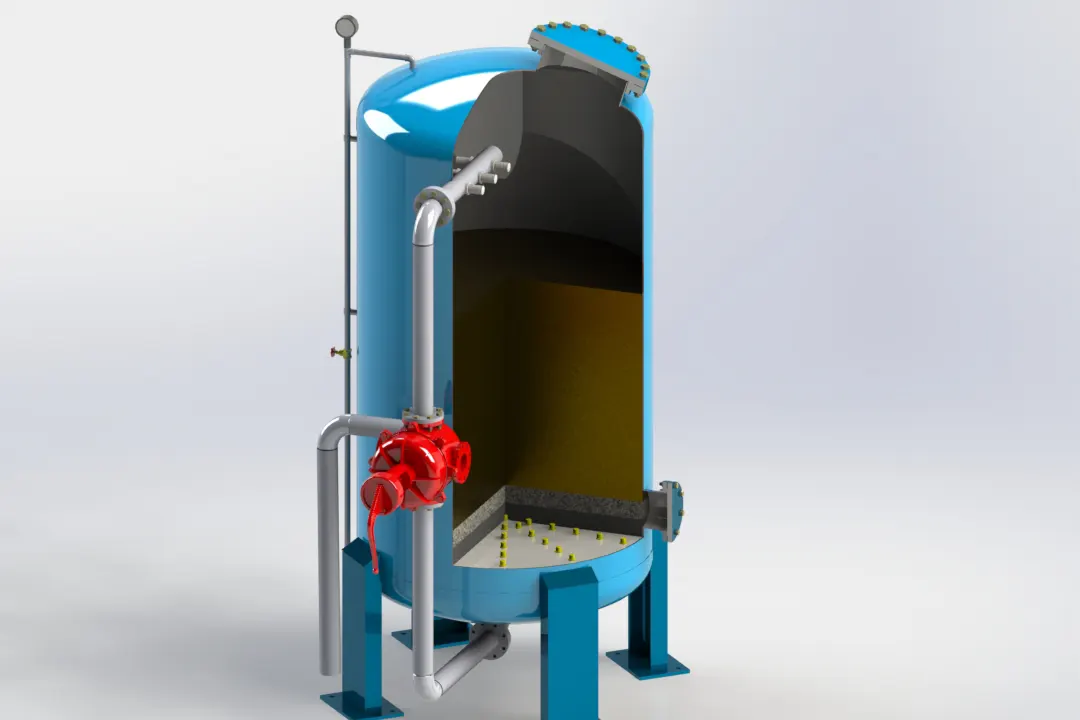Water Softener is one of the most important water purifiers in which the main purpose is to remove ions such as calcium and magnesium from water. This method of water purification has a very wide application due to the negative effect of high consumption of calcium and magnesium in water on the health of the body and kidneys, as well as the formation of sediment in boilers and other industrial tanks. So that the types of devices used in water hardening such as resin hardeners, magnetic and electronic are designed and produced. Araz Tajhiz Parsis Company, as one of the most reputable design and production teams for resin hardeners, etc., will introduce different types of these devices in terms of body material and performance, advantages, applications and important points in using this device.
What is a stiffener?
Hard water is water that has a high volume of ions such as calcium and magnesium for various reasons such as passing through different layers of soil. These salts and ions gradually deposit in the walls of containers, pipes and walls due to rising water temperatures. In addition, consuming water with a hardness above 500 ppm can lead to kidney stones and can cause many problems.
Hardening of water, which is known as water hardening, is done by different methods, which in a general category can be divided into temporary and permanent hardening. In many cases, a large volume of salts, calcium and magnesium in the water settles and precipitates due to heating and boiling water in the walls and bottom of the container. This type of hardness is temporary or carbonate hardness and can be easily removed. In another type of water hardness, which is known as permanent hardness and the salts in water are non-carbonate, they can be removed only by industrial methods and with different chemicals and processes.

Types of hardeners in terms of body material
Fiberglass hardener
· Metal hardener
Types of hardeners in terms of performance
- Resin hardener
- Magnetic hardener
- reverse osmosis
- Electronic
- Carbon filter
Advantages of water hardener
As mentioned, water hardeners are widely used in domestic and industrial applications because of the harmful effects that salts in water cause on various environments. The main reasons for the importance of water hardening are:
- Calcium and magnesium chlorides in water severely corrode boiler walls, water pipes, and other metals.
- Calcium and magnesium sulfates eventually build up on walls and water transfer paths in power plants, home water pipes, and water heaters.
- The presence of more than 3000 mg of sodium chloride in water causes salinity, bad taste and non-drinkability.
- The CO2 released from the carbonate and bicarbonate of potassium and sodium will react with the water to produce carbonic acid. Carbonic acid has a strong negative effect on the pipes and walls of industrial boilers.
- Excessive hardness in water is harmful to human health and includes the formation of kidney stones, bladder and indigestion.
- Sedimentation in high pressure boilers, which reduces the efficiency due to low heat transfer and thus increases the operating temperature of the boiler by the user to compensate for the heat transfer deficit and consequently increase fuel consumption.
- Sedimentation in cooling towers, chillers and other heating and refrigeration systems and reduce their efficiency or failure of the entire system
- Due to the hardness of the water, the washing power of all types of soaps is reduced so that the efficiency of detergents in hard water is half that of soft water.
- In the textile and dyeing industries, it causes a decrease in dye quality.
Application of water softener
As mentioned, the hardness of water will have a negative effect not only on people’s health but also on the quality of products produced in the industry. As a result, it can be used in various fields, the most important of which are the following:
- Prevent sedimentation operations in expensive devices
- Reduce hardness and purify drinking water
- Prevention of clogged pipes



